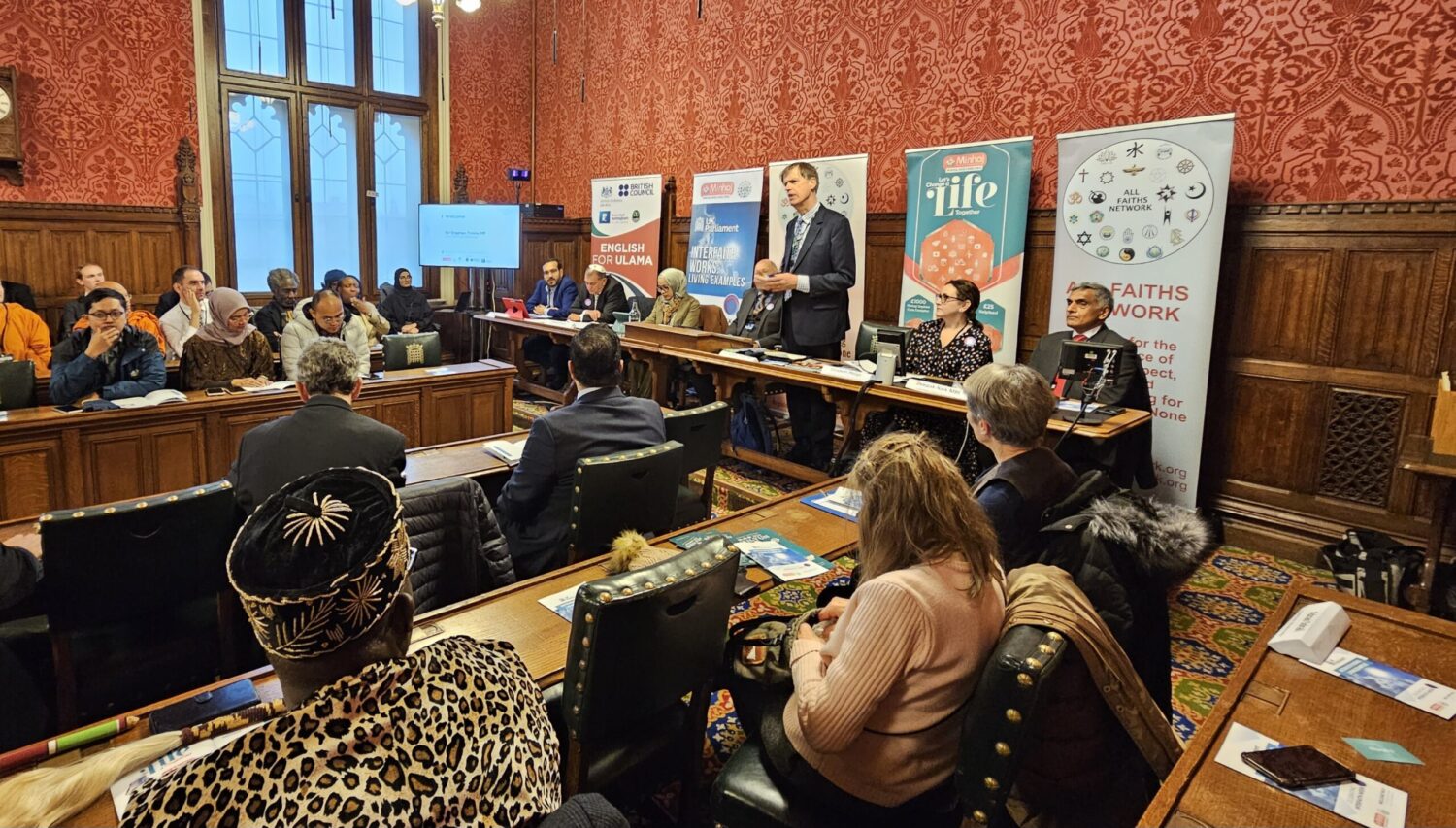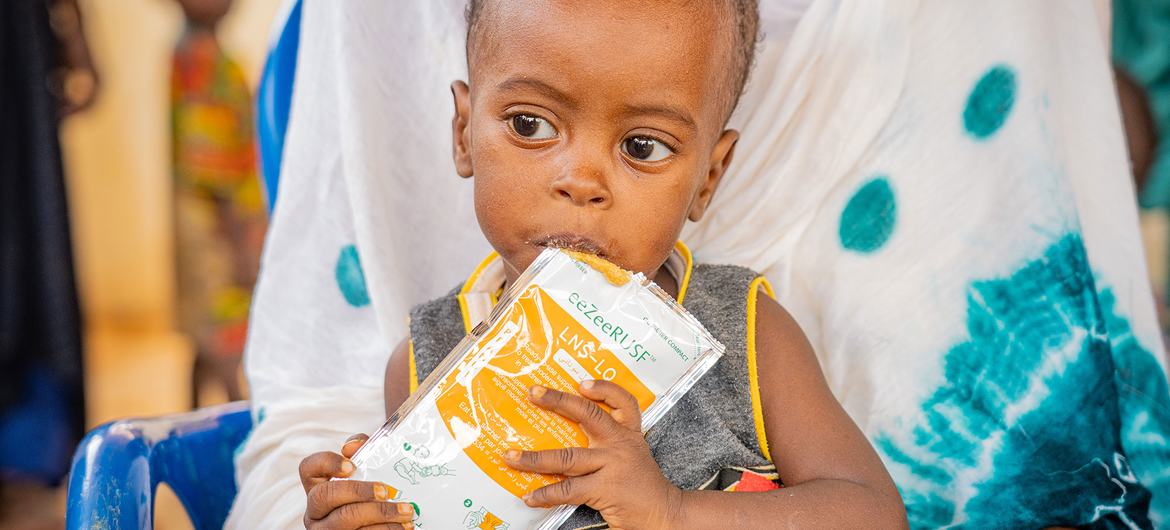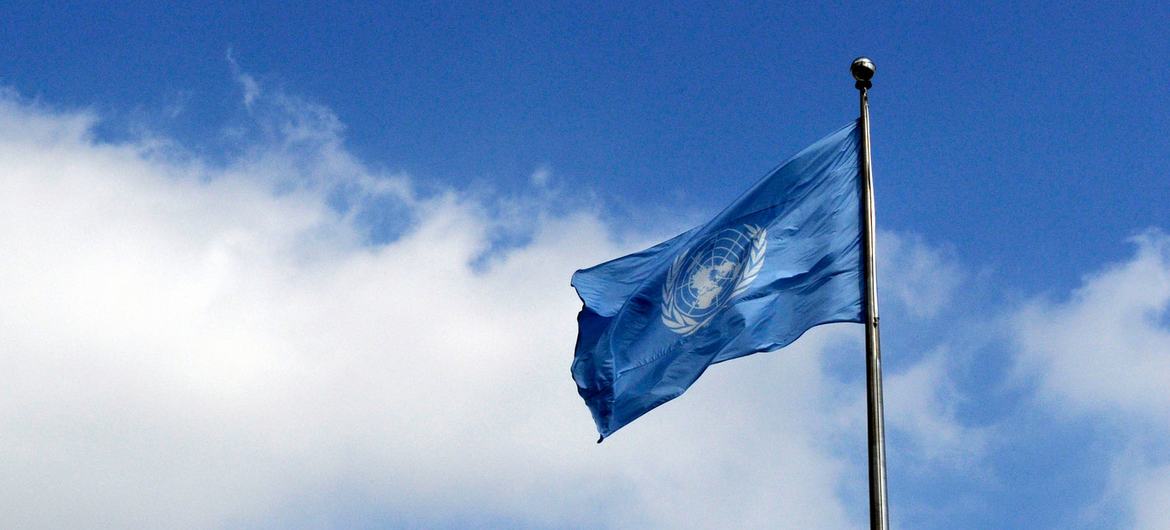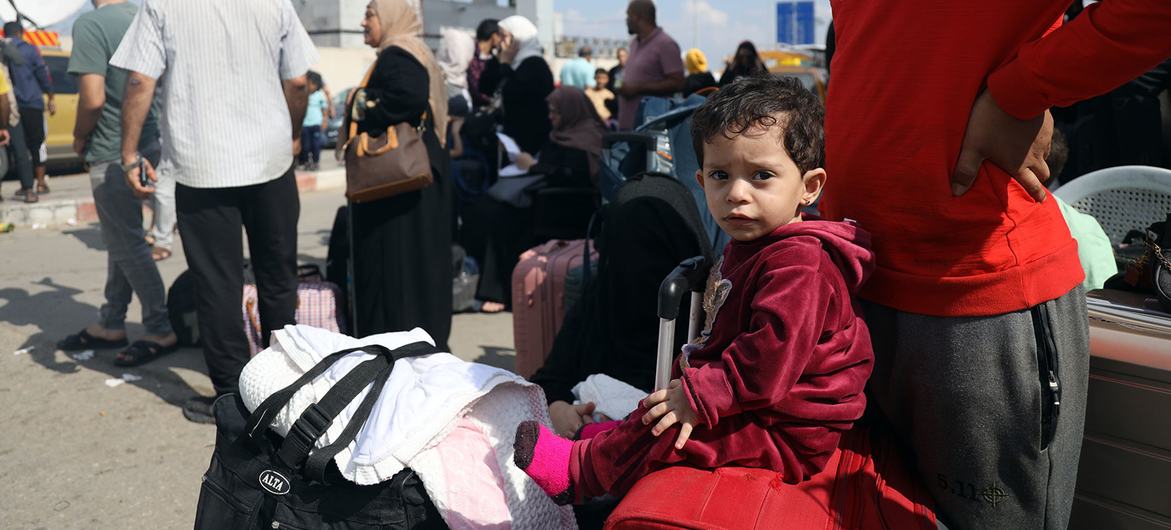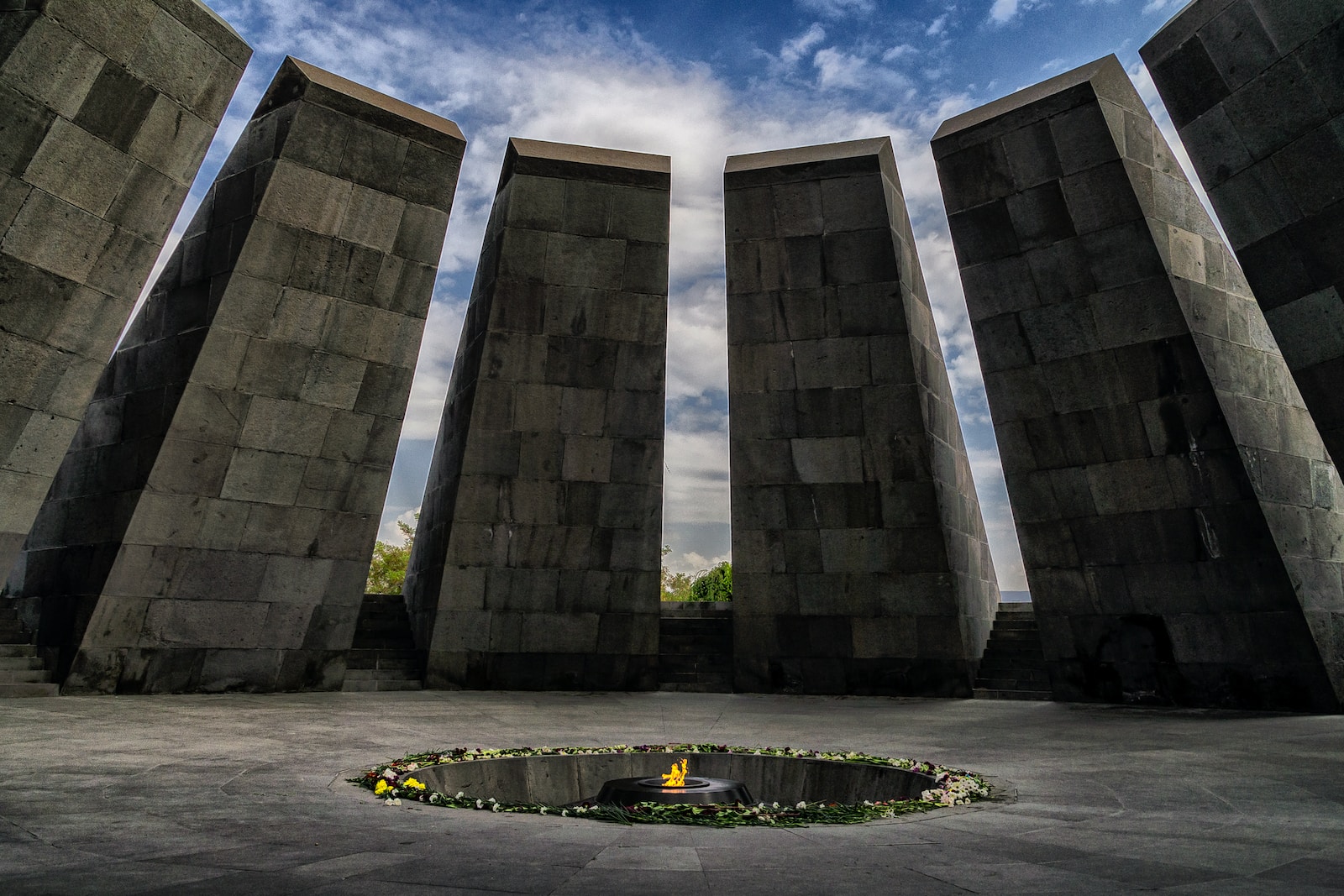UPDATED: The bombardment of Gaza has taken a devastating toll on its children said the UN Children’s Fund UNICEF on Tuesday, with a reported 2,360 fatalities and a reported 5,364 injuries suffered.
This amounts to more than 400 children reportedly either killed or injured daily. Additionally, more than 30 Israeli children reportedly have lost their lives, and dozens remain in captivity within the Gaza Strip. The 18-day period is the deadliest escalation of hostilities in the Gaza Strip and Israel that the UN has witnessed since 2006, the agency said.
Almost every child in the Gaza Strip has been exposed to deeply distressing events and trauma.
“The killing and maiming of children, abduction of children, attacks on hospitals and schools, and the denial of humanitarian access constitute grave violations of children’s rights,” said Adele Khodr, UNICEF Regional Director for the Middle East and North Africa.
“UNICEF urgently appeals on all parties to agree to a ceasefire, allow humanitarian access and release all hostages. Even wars have rules. Civilians must be protected – children particularly – and all efforts must be made to spare them in all circumstances.”
Independent rights investigators call for access
The UN Human Rights Council-mandated Independent Commission of Inquiry on the Occupied Palestinian Territory, called on Israel, the Palestinian Authority in the West Bank and Hamas which controls Gaza, to support its ongoing investigations into “serious crimes” including murder, rape and other forms of sexual violence.
The Commission was established via a Council resolution in May 2021, to investigate alleged violations of international law, including “all underlying root causes of recurrent tensions…including systematic discrimination and repression”.
Presenting its latest report to the General Assembly on Tuesday, the Commission said it “unequivocally condemns the killing of over 1,000 Israeli citizens by Hamas and other Palestinian armed groups, injuring thousands more and the taking of more than 200 hostages, including children.”
Investigators also unequivocally condemned “Israeli military attacks that resulted in the deaths of thousands of Palestinian civilians, as well as hundreds of children.”
The Commission called for the immediate cessation of hostilities, and the immediate and safe return of all hostages.
Chair Navi Pillay said in her statement there were “clear indications that international crimes have been and are being committed.”
In accordance with its brief “and in furtherance of justice and accountability, the Commission immediately began collecting and preserving evidence.”
She said they would “not only focus on crimes and violations but also identify individual criminal responsibility”.
Surgery with no anesthetic: WHO
Doctors have been performing surgeries without anaesthesia or other basic surgical supplies, the UN World Health Organization (WHO) said in an update, noting that fuel has become the “most vital commodity” in Gaza.
Without it, “trucks can’t move and generators can’t produce electricity for hospitals, bakeries and water desalination plants,” said Tamara Alrifai, spokesperson for the UN agency for Palestine refugees (UNRWA).
To date, fuel has been absent from the aid convoys allowed in so far.
“We are on our knees asking for sustained, scaled up, protected humanitarian operations”, UN health agency (WHO) Emergencies Director for the Eastern Mediterranean Region Dr. Rick Brennan said.
Briefing reporters from Cairo, he appealed “to all those in a situation to make a decision or influence decision makers, to give us the humanitarian space to address this human catastrophe”.
Diligence system for aid
The 54 trucks which have crossed into Gaza from Egypt as part of three convoys since Saturday contained a mix of food, medical supplies and non-food items, Ms. Alrifai said.
In comparison, she underscored that before the conflict, 500 trucks used to enter Gaza every day – those included commercial trucks and at least 100 aid trucks, some 45 of them bringing fuel.
Ms. Alrifai stressed that the logistics, coordination, transport and warehousing of the three convoys from Rafah were organized on the Gaza Strip side by UNRWA. Asked about the security risk of any fuel deliveries falling into the wrong hands, Ms. Alrifai explained that as with other equipment UNRWA would be responsible for receiving and handling the fuel, and having it delivered to hospitals and water desalination plants.
“We have in place a very sturdy diligence system to make sure that anything we receive is only used for humanitarian purposes,” she insisted.
Outbreaks ‘just a matter of time’
WHO’s Dr. Brennan highlighted the dire consequences of a lack of access to clean water, compounded by overcrowding. Between one and three litres per person per day were available in Gaza while the absolute minimum was 15 litres, he said.
People were being pushed to consume contaminated water and the spread of infectious diseases was “just a matter of time”.
Dr Brennan also said that WHO was working with UNRWA to establish a system of disease surveillance with daily reports. The most common infectious diseases were respiratory tract infections and diarrhoea, but chicken pox and skin infections like scabies and head lice were also to be expected.
Health facilities overwhelmed
WHO highlighted the extreme gravity of the health situation in the Gaza Strip under Israeli bombardment for over two weeks.
One in three hospitals and two in three clinics were not functioning, and health facilities and workers were overwhelmed with a massive load of trauma cases, many of them complex injuries due to explosions. Dr Brennan cited the example of Al-Shifa Hospital in Gaza City, which had 1.5 patients for each bed.
With 1.4 million displaced people across the territory, overcrowding was a major challenge to the health system.
“I’ve been working in humanitarian assistance for 30 years and can’t remember that number of people displaced over such a short period of time,” Dr Brennan said.
Medicines boost
Some of the WHO medicines and supplies from the three convoys allowed into the enclave have already been delivered to three key referral hospitals in southern Gaza and to the Palestine Red Crescent Society for distribution to its two health facilities and ambulance crews.
They took boxes of medicines off the trucks and straight into operating theatres
“Health staff were so relieved to have replenishments, they took boxes of medicines off the trucks and straight into operating theatres,” WHO said.
Up to 200 women per day are having babies in Gaza and have trouble finding a safe place to deliver, Dr Brennan warned. More than half of them can be expected to experience complications and risk not getting the care they need.
Furthermore, under constant bombardment, the mental health needs of the population are “enormous”, he said.
‘Mortality will increase’
Dr. Brennan highlighted the plight of Gazans with chronic conditions, including kidney disease and diabetes, who have more and more difficulty in accessing services. He warned that they will experience complications and that “mortality will increase”.
Across the border in Egypt, WHO said that it has additional medicines and medical equipment on standby that are enough to provide surgical interventions for 3,700 trauma patients, essential health services for 110,000 people and care for 20,000 chronic diseases patients.
Lives on the line
Dr. Brennan stressed however that even once supplies get across the border, delivery to hospitals is compromised not only because of the lack of fuel, but also due to the “huge security risks” to UN personnel and partners trying to bring aid to hospitals in an active war zone.
UNRWA’s Ms. Alrifai recalled that the agency was mourning the loss of 35 staff so far, most of whom were themselves displaced and were working inside the agency’s shelters and facilities to assist the 400,000 or so people who have sought safety there.
A total of 40 UNRWA installations have been damaged since 7 October.
Asked about accountability for the deaths and destruction, Ms. Alrifai reiterated the importance of respecting the principles of international humanitarian law in wartime.
“Whatever happened to our colleagues and our buildings is unacceptable – no matter who did it,” she said.






